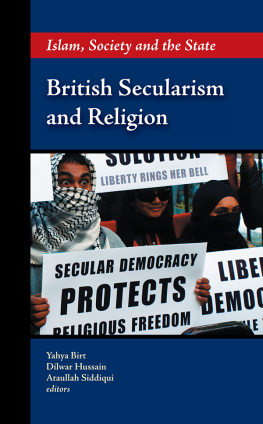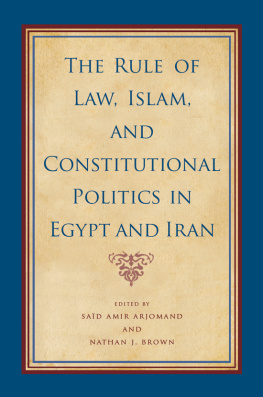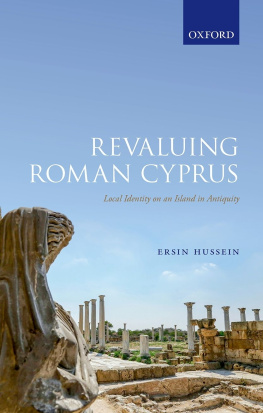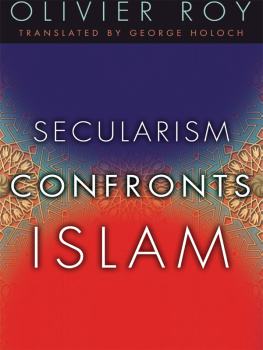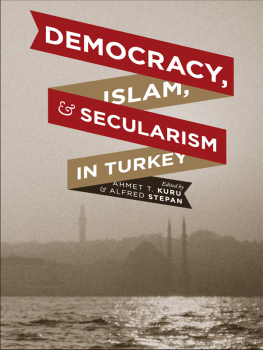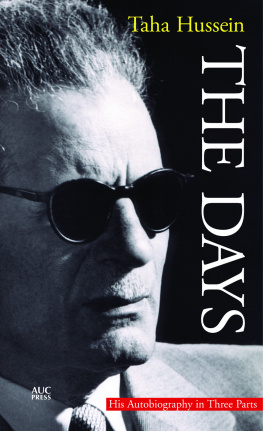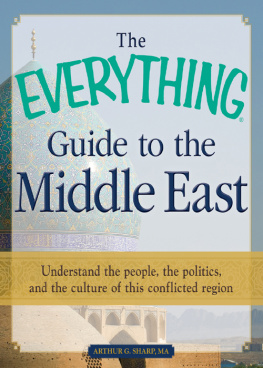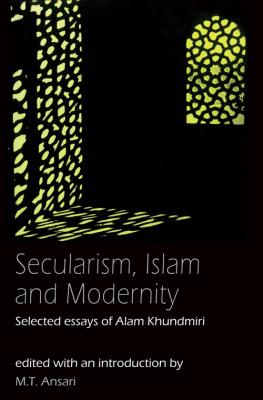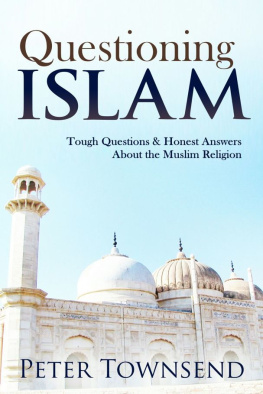Hussein Ali Agrama - Questioning Secularism: Islam, Sovereignty, and the Rule of Law in Modern Egypt
Here you can read online Hussein Ali Agrama - Questioning Secularism: Islam, Sovereignty, and the Rule of Law in Modern Egypt full text of the book (entire story) in english for free. Download pdf and epub, get meaning, cover and reviews about this ebook. year: 2012, publisher: University of Chicago Press, genre: Religion. Description of the work, (preface) as well as reviews are available. Best literature library LitArk.com created for fans of good reading and offers a wide selection of genres:
Romance novel
Science fiction
Adventure
Detective
Science
History
Home and family
Prose
Art
Politics
Computer
Non-fiction
Religion
Business
Children
Humor
Choose a favorite category and find really read worthwhile books. Enjoy immersion in the world of imagination, feel the emotions of the characters or learn something new for yourself, make an fascinating discovery.

- Book:Questioning Secularism: Islam, Sovereignty, and the Rule of Law in Modern Egypt
- Author:
- Publisher:University of Chicago Press
- Genre:
- Year:2012
- Rating:3 / 5
- Favourites:Add to favourites
- Your mark:
- 60
- 1
- 2
- 3
- 4
- 5
Questioning Secularism: Islam, Sovereignty, and the Rule of Law in Modern Egypt: summary, description and annotation
We offer to read an annotation, description, summary or preface (depends on what the author of the book "Questioning Secularism: Islam, Sovereignty, and the Rule of Law in Modern Egypt" wrote himself). If you haven't found the necessary information about the book — write in the comments, we will try to find it.
Hussein Ali Agrama: author's other books
Who wrote Questioning Secularism: Islam, Sovereignty, and the Rule of Law in Modern Egypt? Find out the surname, the name of the author of the book and a list of all author's works by series.
Questioning Secularism: Islam, Sovereignty, and the Rule of Law in Modern Egypt — read online for free the complete book (whole text) full work
Below is the text of the book, divided by pages. System saving the place of the last page read, allows you to conveniently read the book "Questioning Secularism: Islam, Sovereignty, and the Rule of Law in Modern Egypt" online for free, without having to search again every time where you left off. Put a bookmark, and you can go to the page where you finished reading at any time.
Font size:
Interval:
Bookmark:
HUSSEIN ALI AGRAMA is assistant professor of anthropology at the University of Chicago.
The University of Chicago Press, Chicago 60637
The University of Chicago Press, Ltd., London
2012 by The University of Chicago
All rights reserved. Published 2012.
Printed in the United States of America
21 20 19 18 17 16 15 14 13 12 1 2 3 4 5
ISBN -13: 978-0-226-01068-7 (cloth)
ISBN -13: 978-0-226-01069-4 (paper)
ISBN -13: 978-0-226-01070-0 (e-book)
ISBN -10: 0-226-01068-6 (cloth)
ISBN -10: 0-226-01069-4 (paper)
ISBN -10: 0-226-01070-8 (e-book)
Library of Congress Cataloging-in-Publication Data
Agrama, Hussein Ali.
Questioning secularism : Islam, sovereignty, and the rule of law in modern Egypt / Hussein Ali Agrama.
p. (Chicago studies in practices of meaning)
ISBN 978-0-226-01068-7 (cloth : alkaline paper)
ISBN 0-226-01068-6 (cloth : alkaline paper)
ISBN 978-0-226-01069-4 (pbk. : alkaline paper)
ISBN 0-226-01069-4 (pbk. : alkaline paper)
ISBN 978-0-226-01070-0 (e-book)
ISBN 0-226-01070-8 (e-book) 1. Rule of lawEgypt. 2. Islamic lawEgypt. 3. Islam and stateEgypt. 4. FatwasEgypt. 5. Abu Zayd, Nasr HamidTrials, litigation, etc. I. Title. II. Series: Chicago studies in practices of meaning.
KRM2020.A93 2012
340.590962dc23
2012003654
 This paper meets the requirements of ANSI /NISO Z 39.48-1992 (Permanence of Paper).
This paper meets the requirements of ANSI /NISO Z 39.48-1992 (Permanence of Paper).
Questioning Secularism
Islam, Sovereignty, and the Rule of Law in Modern Egypt
HUSSEIN ALI AGRAMA
THE UNIVERSITY OF CHICAGO PRESS
CHICAGO AND LONDON
C HICAGO STUDIES IN PRACTICES OF MEANING
Edited by Jean Comaroff, Andreas Glaeser, William Sewell, and Lisa Wedeen
Also in the series:
THE GENEALOGICAL SCIENCE: THE SEARCH FOR JEWISH ORIGINS AND THE POLITICS OF EPISTEMOLOGY by Nadia Abu El-Haj
NEOLIBERAL FRONTIERS: AN ETHNOGRAPHY OF SOVEREIGNTY IN WEST AFRICA by Brenda Chalfin
ETHNICITY, INC. by John L. Comaroff and Jean Comaroff
INCLUSION: THE POLITICS OF DIFFERENCE IN MEDICAL RESEARCH by Steven Epstein
POLITICAL EPISTEMICS: THE SECRET POLICE, THE OPPOSITION, AND THE END OF EAST GERMAN SOCIALISM by Andreas Glaeser
PRODUCING INDIA: FROM COLONIAL ECONOMY TO NATIONAL SPACE by Manu Goswami
THE MORAL NEOLIBERAL: WELFARE AND CITIZENSHIP IN ITALY by Andrea Muehlebach
THE MAKING OF ROMANTIC LOVE: LONGING AND SEXUALITY IN EUROPE, SOUTH ASIA, AND JAPAN, 9001200 CE by William Reddy
LAUGHING AT LEVIATHAN: SOVEREIGNTY AND AUDIENCE IN WEST PAPUA by Danilyn Rutherford
BENGAL IN GLOBAL CONCEPT HISTORY: CULTURALISM IN THE AGE OF CAPITAL by Andrew Sartori
PARIT! SEXUAL EQUALITY AND THE CRISIS OF FRENCH UNIVERSALISM by Joan Wallach Scott
LOGICS OF HISTORY: SOCIAL THEORY AND SOCIAL TRANSFORMATION by William Sewell
BEWITCHING DEVELOPMENT: WITCHCRAFT AND THE REINVENTION OF DEVELOPMENT IN NEOLIBERAL KENYA by James Howard Smith
THE DEVILS HANDWRITING: PRECOLONIALITY AND THE GERMAN COLONIAL STATE IN QINGDAO, SAMOA, AND SOUTHWEST AFRICA by George Steinmetz
PERIPHERAL VISIONS: PUBLICS, POWER, AND PERFORMANCE IN YEMEN by Lisa Wedeen
FOR MY PARENTS
ALI AGRAMA
NADIA ELHAMY
Contents
Preface
I finished the manuscript of this book in the thrall of victory. On February 11, 2011, after massive, patient, resolute, and continual protest by Egyptians in all parts of the country, Hosni Mubarak was forced to step down from his thirty-year reign. Egyptians from all walks of life engaged in massive celebrations, and their jubilation touched the entire world that watched. I heard a story about an Egyptian passing through US Customs and Immigration. When the immigration officer found out he was Egyptian, the officer announced it to the crowds waiting in line; people erupted in applause.
It was my genuine hope, as I finished this book about secularism and religion in Egypt, that it would quickly become a work of historical anthropology, even a period piece of a bygone era, surpassed by a new time of unknown potential and possibility inaugurated by this unprecedented moment in Egyptian history. And yet this was where some of my celebratory sentiments began to wane. For I was addressing one of modern Egypts most long-standing questions: whether it is, and is to be, a secular or a religious state. And I was writing about one of its oldest, most durable institutions: its judiciary system. I was also concerned with a paradigm that has touched not only Egypt but has attained a nearly global dominance as well: the national security paradigm, which has increasingly normalized the state of emergency and has made us increasingly disposed toward it. A long-standing and increasingly pronounced question, a durable and entrenched institution, and a globally dominant paradigm: will this book speak to the time before and after the Egyptian uprising?
If not, then let it be one document of the decade that preceded and led up to it. One of the central arguments of the book is that Egypt is not stuck in the past, clamoring for a future that Western democratic states have already attained. Rather, with its deeply entrenched and normalized state of emergency and its decades-old war on terror, the kind of state Egypt has become represents one potential secular future toward which Western democratic states are moving. Whether this book speaks to the now or then of Egypt, I maintain that it speaks to the today and tomorrow of secular democratic states in the West.
Beyond the resignation of Mubarak, I see the uprising in Egypt as animated by and expressing a number of related, fundamental principles. One of them is that no one person or group should have a monopoly on powerneither Christians nor Muslims, neither secular nor religious groups. During the protests, no one person, group, or ideological tendency emerged as the leader; all efforts were deliberately collaborative. Another is that the national security paradigm, which has gripped Egypt for so long and all the more tightly under the pretext of a war on religious terror, must be completely dismantled. It should be remembered that much of the animus of the protesters was aimed at the Ministry of the Interior, which directed the massive state security apparatus that had come to define the state. To put all of this another way, we could say that the protesters decoupled the question of religion and secularity from the question of security. In decoupling these questions from each other, they articulated a space free from the demands of both. But I will say more about this in the epilogue.
During the protests many people asked me what I thought the best outcome for the United States would be. The question, I admit, perplexed me, for it seemed that one ought to wonder about what the best outcome for Egyptians would be. But thinking about the underlying principles that animated the protests, I think I might now have an answer to this question. The best outcome for the United States would be if Americans learned from the Egyptians example. The United States, like Egypt, has long been gripped by the national security paradigm; its security apparatuses have grown all the more powerful with the War on Terror, which it conducts both domestically and globally with devastating effect, and political power has been concentrated in the hands of a very few. It may be time in the United States as well to decouple the question of religion/secularity from that of security, and defuse the monopoly on political power that attenuates the possibilities of its democratic ideals. Recent events in Egypt may teach us the possibilities and pitfalls of such an attempt. However things turn out, Egyptians have taught an important but simple lesson that I think is finally starting to dawn upon us everywhere: that our leaders cannot save us from the futures we so fear. Whatever hope there is left, is entirely in our own hands.
Next pageFont size:
Interval:
Bookmark:
Similar books «Questioning Secularism: Islam, Sovereignty, and the Rule of Law in Modern Egypt»
Look at similar books to Questioning Secularism: Islam, Sovereignty, and the Rule of Law in Modern Egypt. We have selected literature similar in name and meaning in the hope of providing readers with more options to find new, interesting, not yet read works.
Discussion, reviews of the book Questioning Secularism: Islam, Sovereignty, and the Rule of Law in Modern Egypt and just readers' own opinions. Leave your comments, write what you think about the work, its meaning or the main characters. Specify what exactly you liked and what you didn't like, and why you think so.

